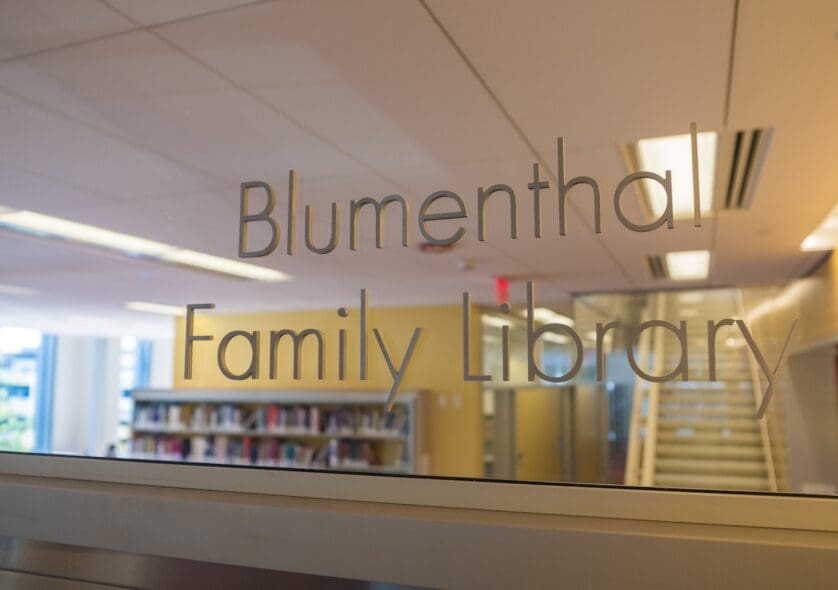The Blumenthal Family Library
The Blumenthal Family Library, including the NEC Archives and Special Collections, holds one of the major music collections in the United States, and provides access, instruction and support to enhance NEC’s teaching, learning, and research.
The collection holds more than 180,000 volumes of physical scores, recordings, and books, over 600,000 electronic items, and also includes subscriptions to music journals and electronic databases with a wealth of manuscripts, first editions, personal papers, and performance recordings by NEC’s renowned composers and performers.
Spring Semester Hours
Monday – Thursday , 9 a.m. – 9 p.m.
Friday and Saturday , 9 a.m. – 5 p.m.
Sunday, 1 p.m. – 9 p.m.
The Blumenthal Family Library

library search
library search
Classic Catalog
Search for all NEC library physical and electronic materials. Need support with the classic catalog?
ReShare
Search resources at other institutions within the Fenway Library Organization — a consortium of academic and special libraries in Massachusetts.
Discovery Catalog
Search across all NEC library physical and electronic collections in addition to databases and other online resources.
more to explore
Library Information and Contact
255 St. Botolph Street, 2nd and 3rd Floors
NEC Student Life and Performance Center (SLPC)
Any written correspondence should be directed to NEC’s main address at 290 Huntington Ave.
Library Borrowing
(617) 585-1250 | Library Borrowing
Library Research
(617) 585-1156 | Library Research
Interlibrary Loan
(617) 585-1249 | Interlibrary Loan
Request from ILL | Please scroll down to “Interlibrary Loan Requests” for forms
Purchase Requests
(617) 585-1249 | Acquisitions
Request a purchase | Please scroll down to “Purchase Requests” for forms
Richard Vallone, Library Director
(617) 585-1251 | Richard Vallone
Jason Coleman, Digital Services Manager
(617) 585-1730 | Jason Coleman
Hannah Ferello, Catalog and Serials Librarian
(617) 585-1254 | Hannah Ferello
Brianna Perez, Public Services Supervisor
(617) 585-1368 | Brianna Perez
Maryalice Perrin-Mohr, Archivist/Records Manager
(617) 585-1252 | Maryalice Perrin-Mohr
Laura Smolowitz, Technical Services Associate
(617) 585-1249 | Laura Smolowitz
Hannah Spence, Head of Cataloging, Acquisitions and Electronic Resource Management
(617) 585-1256 | Hannah Spence
Performance Library
Andres Almirall Nieves
(617) 585-1759 | Andres Almirall
Follow us online!


